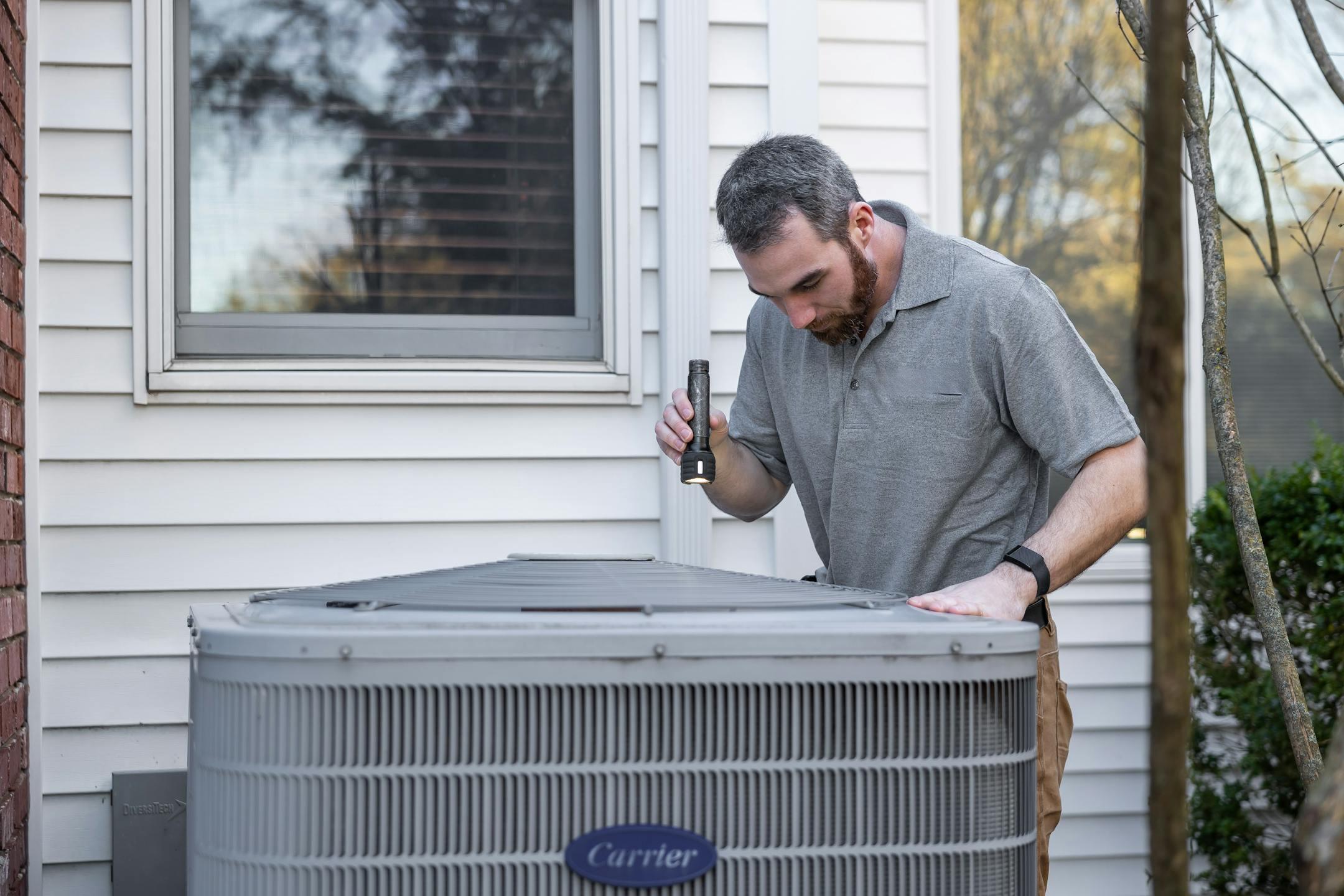
When you call about pump sales, you’re not just buying equipment—you’re trusting someone to keep your system running. At Caldwell Mechanical, we take that seriously. Whether it’s a commercial HVAC setup or a residential water system, we don’t recommend a pump until we’ve made sure it fits your system, not someone else’s.
Before we make any pump recommendation, our team goes through a checklist. We look at how your system works, what the pump needs to do, and how long you expect it to last. It’s not about making a quick sale—it’s about building a long-term solution you won’t have to second-guess later.
Here’s what we look at first before recommending any pump.
Every system has its own limits. The first step in any pump sales conversation is understanding the application.
Is the pump supporting an HVAC system in a large commercial building, or circulating water for a small residential setup? Does it handle chilled water, hot water, or another fluid altogether? Each of these factors changes the type of pump we recommend.
If a pump is too powerful, it wastes energy and stresses your system. Too small, and it won’t meet demand. Either way, you lose efficiency and money. We measure your system’s flow rate, pressure, and head requirements before making any recommendation. That way, you get a pump that runs right from day one.
Where the pump lives affects how long it lasts. We always ask about the environment first.
Is it going in a climate-controlled mechanical room or an outdoor enclosure that faces Oklahoma heat or Texas dust storms? Pumps in extreme temperatures or high-humidity areas need stronger protection, better seals, and specific materials.
A pump that works great in a clean indoor space might fail early in a harsh outdoor setting. That’s why we match materials—like stainless steel, cast iron, or bronze—to your conditions. Our goal is to make sure the pump keeps working long after installation, no matter where it’s placed.
It sounds basic, but not every pump handles the same fluids. Before we move forward with any pump sale, we confirm exactly what the pump will move and what’s in that fluid.
Water with debris, chemicals, or minerals can wear down internal parts fast. In HVAC and refrigeration systems, the fluid might also need to stay at a specific temperature or pressure.
We look at:
Knowing what runs through your pump helps us choose one that won’t corrode, clog, or lose performance over time.
Electricity costs add up, especially in large commercial systems. Energy efficiency is always part of our discussion before recommending any pump.
We compare models with variable-speed drives, efficient impellers, or advanced control systems that match your system’s demand in real time. This helps you save money without sacrificing performance.
Even in smaller residential systems, efficient pumps can make a noticeable difference in monthly bills. That’s why energy efficiency is one of the first things we consider—not an afterthought.
Every pump is part of something bigger. We check how the new pump will fit with your existing components—motors, sensors, controllers, and piping.
In commercial HVAC systems, integration can make or break performance. A pump that doesn’t communicate with the building automation system causes inefficiency and maintenance headaches. We make sure any pump we recommend connects smoothly with what you already have.
If upgrades are needed, we’ll let you know before installation. Our approach is to prevent surprises down the road, not react to them later.
A good pump is one you don’t have to think about every day. But even the best equipment needs maintenance.
Before completing any pump sale, we walk through expected maintenance schedules, replacement parts availability, and what’s involved in servicing the pump. We also look at total cost of ownership—not just the purchase price.
A cheaper pump that fails early or needs constant repairs costs more in the long run. We’d rather help you choose a pump that lasts and fits your maintenance plan. That’s part of how we build lasting relationships with our customers.
We only work with manufacturers we trust. Before recommending a pump, we confirm that the brand provides solid warranties, easy access to replacement parts, and technical support.
That matters more than people realize. When something breaks, having reliable manufacturer backing can save days of downtime. We’ve seen what happens when that support isn’t there—and we don’t let that happen to our customers.
Paper specs don’t always tell the full story. We rely on field experience.
Our technicians have installed, repaired, and maintained pumps across Texas and Oklahoma for years. We’ve seen which models hold up under real conditions and which ones don’t. That experience shapes our pump recommendations more than anything else.
We don’t push the most expensive model. We recommend the one that performs best for your system—based on what we’ve seen in the field.
Your system today might not be your system tomorrow. Maybe you’re planning to expand your facility or add new equipment next year.
We take those future plans into account before making any pump sale. If we can choose a model that handles both your current and future needs, you’ll avoid another replacement down the line.
Our approach is simple: think long term. The pump you buy now should grow with you, not hold you back.
A pump is more than a single piece of equipment—it’s the heartbeat of your HVAC or refrigeration system. When it’s sized and installed correctly, everything runs smoother and lasts longer.
At Caldwell Mechanical, we don’t just sell pumps. We make sure every system we touch works efficiently and reliably for years. That’s how we’ve earned the trust of homeowners and businesses across Oklahoma and Texas.
If you’re planning a new installation, replacement, or repair, talk with us first. We’ll walk through your system, check all the right details, and help you choose the best fit.